Liverpool Kirkdale (UK Parliament constituency)
Liverpool Kirkdale was a constituency represented in the House of Commons of the Parliament of the United Kingdom covering Kirkdale, Liverpool. It elected one Member of Parliament (MP) by the first past the post system of election.
| Liverpool Kirkdale | |
|---|---|
| Former Borough constituency for the House of Commons | |
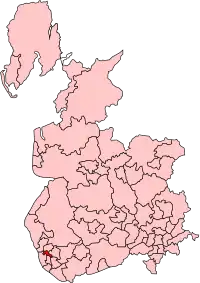 Liverpool Kirkdale in Lancashire, showing boundaries used from 1974-1983 | |
| 1885–1983 | |
| Seats | one |
| Replaced by | Liverpool Walton, Liverpool Broadgreen and Liverpool Riverside |
Boundaries
1885–1918: The parish of Kirkdale, and part of the parish of Everton.
1918–1950: The County Borough of Liverpool wards of Kirkdale and St Domingo.
1950–1955: The County Borough of Liverpool wards of Anfield, Breckfield, and Kirkdale.
1955–1974: The County Borough of Liverpool wards of Anfield, Breckfield, Melrose, Tuebrook, and Westminster.
1974–1983: The County Borough of Liverpool wards of Anfield, Breckfield, Melrose, St Domingo, Tuebrook, and Westminster.
Members of Parliament
- Adopted the name John in 1923 and created a baronet in 1924.
Election results 1885–1918
Elections in the 1880s
| Party | Candidate | Votes | % | ±% | |
|---|---|---|---|---|---|
| Conservative | George Baden-Powell | 3,391 | 55.2 | ||
| Lib-Lab | James Samuelson | 1,981 | 32.3 | ||
| Irish Nationalist | John Redmond | 765 | 12.5 | ||
| Majority | 1,410 | 22.9 | |||
| Turnout | 6,317 | 73.5 | |||
| Registered electors | 8,346 | ||||
| Conservative win (new seat) | |||||
| Party | Candidate | Votes | % | ±% | |
|---|---|---|---|---|---|
| Conservative | George Baden-Powell | 3,084 | 58.7 | +3.5 | |
| Liberal | Ralph Neville | 2,172 | 41.3 | +9.0 | |
| Majority | 912 | 17.4 | -5.5 | ||
| Turnout | 5,256 | 63.0 | -10.5 | ||
| Registered electors | 8,346 | ||||
| Conservative hold | Swing | -2.7 | |||
Elections in the 1890s
| Party | Candidate | Votes | % | ±% | |
|---|---|---|---|---|---|
| Conservative | George Baden-Powell | 3,750 | 57.5 | -1.2 | |
| Lib-Lab | T. R. Threlfall | 2,773 | 42.5 | +1.2 | |
| Majority | 977 | 15.0 | -2.4 | ||
| Turnout | 6,523 | 68.2 | +5.2 | ||
| Registered electors | 9,567 | ||||
| Conservative hold | Swing | -1.2 | |||
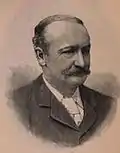
| Party | Candidate | Votes | % | ±% | |
|---|---|---|---|---|---|
| Conservative | George Baden-Powell | 3,818 | 60.7 | +3.2 | |
| Liberal | Benjamin Sands Johnson | 2,468 | 39.3 | -3.2 | |
| Majority | 1,350 | 21.4 | +6.4 | ||
| Turnout | 6,286 | 65.3 | -2.9 | ||
| Registered electors | 9,631 | ||||
| Conservative hold | Swing | +3.2 | |||
Baden-Powell's death caused a by-election.
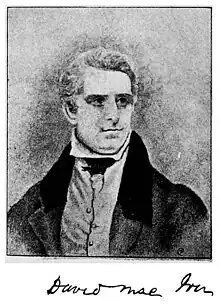
| Party | Candidate | Votes | % | ±% | |
|---|---|---|---|---|---|
| Conservative | David MacIver | Unopposed | |||
| Conservative hold | |||||
Elections in the 1900s
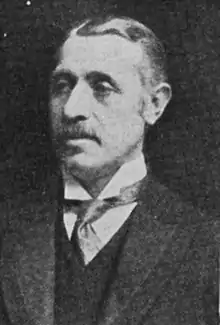
| Party | Candidate | Votes | % | ±% | |
|---|---|---|---|---|---|
| Conservative | David MacIver | 4,333 | 71.4 | +10.7 | |
| Liberal | Richard Cherry | 1,738 | 28.6 | −10.7 | |
| Majority | 2,595 | 42.8 | +21.4 | ||
| Turnout | 6,071 | 56.8 | −8.5 | ||
| Registered electors | 10,695 | ||||
| Conservative hold | Swing | +10.7 | |||
| Party | Candidate | Votes | % | ±% | |
|---|---|---|---|---|---|
| Conservative | David MacIver | 3,749 | 54.3 | −17.1 | |
| Labour Repr. Cmte. | James Conley | 3,157 | 45.7 | New | |
| Majority | 592 | 8.6 | −34.2 | ||
| Turnout | 6,284 | 65.2 | +8.4 | ||
| Registered electors | 10,596 | ||||
| Conservative hold | Swing | N/A | |||
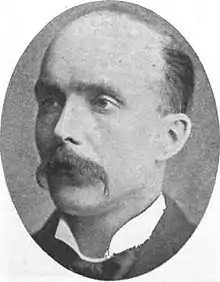
| Party | Candidate | Votes | % | ±% | |
|---|---|---|---|---|---|
| Conservative | Charles MacArthur | 4,000 | 54.6 | +0.3 | |
| Labour | John Hill | 3,330 | 45.4 | −0.3 | |
| Majority | 670 | 9.2 | +0.6 | ||
| Turnout | 7,330 | 69.6 | +4.4 | ||
| Registered electors | 10,529 | ||||
| Conservative hold | Swing | +0.3 | |||
Elections in the 1910s
| Party | Candidate | Votes | % | ±% | |
|---|---|---|---|---|---|
| Conservative | Charles MacArthur | 4,144 | 51.4 | -3.2 | |
| Labour | Alexander Gordon Cameron | 3,921 | 48.6 | +3.2 | |
| Majority | 223 | 2.8 | -6.4 | ||
| Turnout | 6,065 | 77.8 | +8.2 | ||
| Conservative hold | Swing | -3.2 | |||
| Party | Candidate | Votes | % | ±% | |
|---|---|---|---|---|---|
| Conservative | Gerald Kyffin-Taylor | 4,268 | 55.5 | +4.1 | |
| Labour | Alexander Gordon Cameron | 3,427 | 44.5 | ―4.1 | |
| Majority | 841 | 11.0 | +8.2 | ||
| Turnout | 7,695 | 74.3 | ―3.5 | ||
| Conservative hold | Swing | +4.1 | |||
| Party | Candidate | Votes | % | ±% | |
|---|---|---|---|---|---|
| Conservative | Gerald Kyffin-Taylor | 4,205 | 58.4 | +2.9 | |
| Labour | Thomas McKerrell | 2,992 | 41.6 | ―2.9 | |
| Majority | 1,213 | 16.8 | +5.8 | ||
| Turnout | 7,197 | 69.5 | ―4.8 | ||
| Conservative hold | Swing | +2.9 | |||
| Party | Candidate | Votes | % | ±% | |
|---|---|---|---|---|---|
| Unionist | De Fonblanque Pennefather | Unopposed | |||
| Unionist hold | |||||
Elections 1918–1945
Elections in the 1910s
| Party | Candidate | Votes | % | ±% | |
|---|---|---|---|---|---|
| Unionist | De Fonblanque Pennefather | 10,380 | 67.4 | N/A | |
| Labour | Samuel Mason | 5,012 | 32.0 | New | |
| Majority | 5,368 | 34.4 | N/A | ||
| Turnout | 15,392 | 50.0 | N/A | ||
| Unionist hold | Swing | N/A | |||
| C indicates candidate endorsed by the coalition government. | |||||
Elections in the 1920s
| Party | Candidate | Votes | % | ±% | |
|---|---|---|---|---|---|
| Unionist | De Fonblanque Pennefather | Unopposed | N/A | N/A | |
| Unionist hold | Swing | N/A | |||
| Party | Candidate | Votes | % | ±% | |
|---|---|---|---|---|---|
| Unionist | De Fonblanque Pennefather | Unopposed | N/A | N/A | |
| Unionist hold | Swing | N/A | |||
| Party | Candidate | Votes | % | ±% | |
|---|---|---|---|---|---|
| Unionist | John Pennefather | 14,392 | 60.6 | N/A | |
| Labour | Elijah Sandham | 9,369 | 39.4 | New | |
| Majority | 5,023 | 21.2 | N/A | ||
| Turnout | 23,761 | 73.7 | N/A | ||
| Unionist hold | Swing | N/A | |||
| Party | Candidate | Votes | % | ±% | |
|---|---|---|---|---|---|
| Labour | Elijah Sandham | 15,222 | 51.3 | +11.9 | |
| Unionist | Robert Rankin | 14,429 | 48.7 | ―11.9 | |
| Majority | 793 | 2.6 | N/A | ||
| Turnout | 29,651 | 72.9 | ―3.8 | ||
| Labour gain from Unionist | Swing | +11.9 | |||
Elections in the 1930s
| Party | Candidate | Votes | % | ±% | |
|---|---|---|---|---|---|
| Conservative | Robert Rankin | 14,303 | 45.2 | ―3.5 | |
| Ind. Labour Party | Elijah Sandham | 9,531 | 30.1 | ―21.2 | |
| Liverpool Protestant Party | Henry Dixon Longbottom | 7,834 | 24.7 | New | |
| Majority | 4,772 | 15.1 | N/A | ||
| Turnout | 31,668 | 77.5 | +4.6 | ||
| Conservative gain from Labour | Swing | +8.8 | |||
| Party | Candidate | Votes | % | ±% | |
|---|---|---|---|---|---|
| Conservative | Robert Rankin | 10,540 | 38.8 | ―6.4 | |
| Labour | John Hamilton | 9,984 | 36.7 | +6.6 | |
| Liverpool Protestant Party | Henry Dixon Longbottom | 6,677 | 24.6 | ―0.1 | |
| Majority | 556 | 2.1 | ―13.0 | ||
| Turnout | 27,201 | 69.5 | ―8.0 | ||
| Conservative hold | Swing | ―6.5 | |||
General Election 1939–40
Another General Election was required to take place before the end of 1940. The political parties had been making preparations for an election to take place and by the Autumn of 1939, the following candidates had been selected;
- Conservative: Robert Rankin
- Labour: John Hamilton[9]
- Liverpool Protestant Party: Henry Dixon Longbottom
Elections in the 1940s
| Party | Candidate | Votes | % | ±% | |
|---|---|---|---|---|---|
| Labour | William Keenan | 10,640 | 54.1 | +17.4 | |
| Conservative | Aled Roberts | 6,414 | 32.6 | ―6.2 | |
| Liverpool Protestant Party | Henry Dixon Longbottom | 2,601 | 13.2 | ―11.4 | |
| Majority | 4,226 | 21.5 | N/A | ||
| Turnout | 19,655 | 64.3 | ―5.2 | ||
| Labour gain from Conservative | Swing | +11.8 | |||
Elections 1950–1979
Elections in the 1950s
| Party | Candidate | Votes | % | ±% | |
|---|---|---|---|---|---|
| Labour | William Keenan | 19,219 | 48.7 | ―5.4 | |
| Conservative | David J. Lewis | 18,591 | 47.1 | +14.5 | |
| Liberal | June Stananought Pritchard | 1,648 | 4.2 | New | |
| Majority | 628 | 1.6 | ―19.9 | ||
| Turnout | 39,458 | 79.7 | +15.4 | ||
| Labour hold | Swing | ―10.0 | |||
| Party | Candidate | Votes | % | ±% | |
|---|---|---|---|---|---|
| Labour | William Keenan | 19,637 | 51.0 | +2.3 | |
| Conservative | David J. Lewis | 18,879 | 49.0 | +1.9 | |
| Majority | 758 | 2.0 | +0.4 | ||
| Turnout | 38,516 | 77.9 | ―1.8 | ||
| Labour hold | Swing | +0.2 | |||
| Party | Candidate | Votes | % | ±% | |
|---|---|---|---|---|---|
| Conservative | Norman Pannell | 22,356 | 52.1 | +3.1 | |
| Labour | William Keenan | 20,542 | 47.9 | ―3.1 | |
| Majority | 1,814 | 4.2 | N/A | ||
| Turnout | 42,898 | 70.6 | −7.3 | ||
| Conservative gain from Labour | Swing | +3.1 | |||
| Party | Candidate | Votes | % | ±% | |
|---|---|---|---|---|---|
| Conservative | Norman Pannell | 22,416 | 53.3 | +1.2 | |
| Labour Co-op | Thomas H. Hockton | 19,669 | 46.7 | ―1.2 | |
| Majority | 2,747 | 6.6 | +2.4 | ||
| Turnout | 42,085 | 73.7 | +3.1 | ||
| Conservative hold | Swing | +1.2 | |||
Elections in the 1960s
| Party | Candidate | Votes | % | ±% | |
|---|---|---|---|---|---|
| Labour | James Dunn | 20,128 | 55.5 | +8.8 | |
| Conservative | Norman Pannell | 16,120 | 44.5 | ―8.8 | |
| Majority | 4,008 | 11.0 | +4.4 | ||
| Turnout | 36,248 | 69.1 | ―4.6 | ||
| Labour gain from Conservative | Swing | +8.8 | |||
| Party | Candidate | Votes | % | ±% | |
|---|---|---|---|---|---|
| Labour | James Dunn | 19,233 | 59.3 | +3.8 | |
| Conservative | Norman Pannell | 13,219 | 40.7 | ―3.8 | |
| Majority | 6,014 | 18.6 | +7.6 | ||
| Turnout | 32,452 | 65.7 | ―3.4 | ||
| Labour hold | Swing | +3.8 | |||
Elections in the 1970s
| Party | Candidate | Votes | % | ±% | |
|---|---|---|---|---|---|
| Labour | James Dunn | 17,678 | 56.5 | ―2.8 | |
| Conservative | Michael P. Tinne | 13,615 | 43.5 | +2.8 | |
| Majority | 4,063 | 13.0 | ―5.6 | ||
| Turnout | 31,293 | 63.7 | ―2.0 | ||
| Labour hold | Swing | ―2.8 | |||
| Party | Candidate | Votes | % | ±% | |
|---|---|---|---|---|---|
| Labour | James Dunn | 16,443 | 52.7 | ―4.9 | |
| Conservative | James Gillin | 9,918 | 31.8 | ―10.6 | |
| Liberal | Paul Desmond Mahon | 4,866 | 15.6 | New | |
| Majority | 6,525 | 20.9 | +7.9 | ||
| Turnout | 31,227 | 69.5 | +5.8 | ||
| Labour hold | Swing | +7.8 | |||
| Party | Candidate | Votes | % | ±% | |
|---|---|---|---|---|---|
| Labour | James Dunn | 17,686 | 61.4 | +8.7 | |
| Conservative | Maurice Edward Jones | 8,205 | 28.5 | ―3.3 | |
| Liberal | Michael Storey | 2,908 | 10.1 | ―5.5 | |
| Majority | 9,481 | 32.9 | +12.0 | ||
| Turnout | 28,799 | 63.5 | ―6.0 | ||
| Labour hold | Swing | +6.0 | |||
| Party | Candidate | Votes | % | ±% | |
|---|---|---|---|---|---|
| Labour | James Dunn | 17,043 | 56.1 | ―5.3 | |
| Conservative | Myra Fitzsimmons | 9,334 | 30.7 | +2.2 | |
| Liberal | Paul Desmond Mahon | 3,819 | 12.6 | +2.5 | |
| National Front | Warner Reginald Williams | 198 | 0.7 | New | |
| Majority | 7,709 | 25.4 | ―7.5 | ||
| Turnout | 30,394 | 70.2 | +6.7 | ||
| Labour hold | Swing | ―3.8 | |||
References
- Leigh Rayment's Historical List of MPs – Constituencies beginning with "K" (part 2)
- British Parliamentary Election Results 1885–1918, FWS Craig. Chichester: Parliamentary Research Services. p142. ISBN 0-900178-27-2
- The Liberal Year Book, 1907
- Debrett's House of Commons & Judicial Bench, 1886
- Debrett's House of Commons & Judicial Bench, 1896
- Debrett's House of Commons & Judicial Bench, 1901
- Debrett's House of Commons & Judicial Bench, 1916
- British Parliamentary Election Results 1918–1949, FWS Craig
- Report of the Annual Conference of the Labour Party, 1939